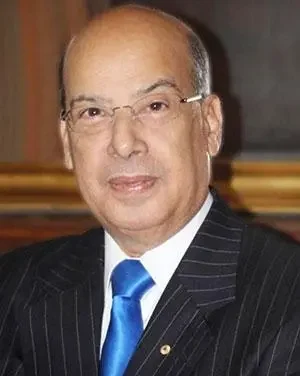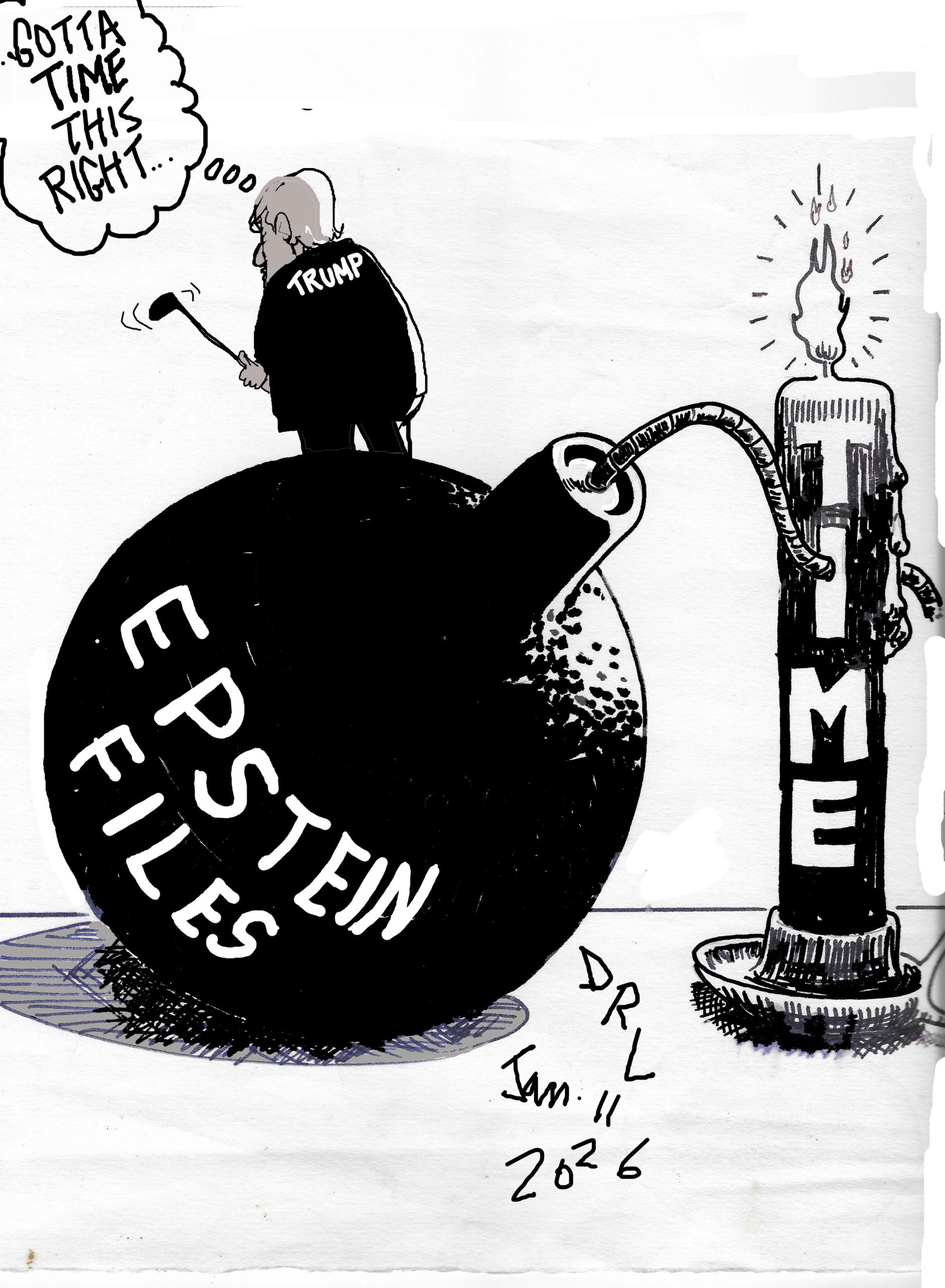Latest update January 12th, 2026 12:30 AM
Latest News
- Ram warns Govt. against excessive spending as oil prices likely to dip further
- Cuba defiant after Trump says island to receive no more Venezuelan oil or money
- Change in Venezuela’s leadership will not alter oil trajectory, ease climate pressures
- Banks DIH opens $13.7B beer plant
- Norton refuses to make suggestions for 2026 budget
Remembering Sir David Rose on his 50th death anniversary
Nov 17, 2019 Countryman, News
By Dennis Nichols
Nineteen sixty-nine was an eventful year in many respects around the world. The unthinkable happened – a human being walked on the moon. Equally unthinkable, in the United States, Charles Manson and his ‘disciples’ wrought bloody havoc in Los Angeles, California. Then, as anti-Vietnam War sentiments heated up, almost half a million people took part in the largest anti-war protest in American history, on November 15 of that year.
Here in Guyana, the year started with the abortive Rupununi ‘Uprising’ which saw a number of fatalities, including five police officers. And as it drew to a close, our country’s first Governor-General, Sir David Rose, himself a former police officer, died in a horrifying freak accident in England.
Last Sunday’s ‘Countryman’ should have been a memorial to the late governor-general, who passed away exactly 50 years ago on that day – November 10, in 1969. But circumstances dictated otherwise. Today, and especially for the benefit of younger readers, I will look back briefly on the life and death of this distinguished son-of-the-soil.
Not many young Guyanese may be acquainted with the name David James Gardiner Rose; even less so with his stature in Guyanese history. Schoolchildren probably know from their Social Studies classes that he was independent Guyana’s first native-born governor general, and that he is buried at the Seven Ponds Place of Heroes in the Botanical Gardens. But there is much more.
Born on April 10, 1923, the son of a doctor, (leprologist) David Rose spent his childhood in Mahaica on the East Coast of Demerara, but was educated in Derbyshire, England. After giving military service there with the Kings Own Yorkshire Light Infantry, he returned to then British Guiana in 1948, the same year he got married to Ms. Patricia Firkins in London, and joined the local Colonial Police Force.
Rose joined the police force as a cadet officer and moved swiftly up the ranks to become an Assistant Superintendent and Assistant Commissioner (Crime) in the mid-1950s. It was during this period that he became famous for his brilliance and bravery in dealing with a number of criminal desperadoes, including the notorious Clement Cuffy in 1959.
Cuffy was perceived as a most dangerous and violent criminal, and a murder suspect to boot. It was reported that he terrorized residents on both the East and West Coast of Demerara, until his capture at the hands of a police posse led by Rose. The showdown happened at Naamryck, not far from Parika, to which point Crime Chief Rose led a party of six policemen.
The posse had to crawl through a swamp, neck-deep in moss, before getting within 15 yards of Cuffy’s hideout. After Rose told him that he was surrounded, and to surrender, Cuffy answered with a volley from his Winchester rifle. Constable Chester fell, mortally wounded, and a bullet almost took off Rose’s head. Another police officer was also shot and killed, and a few others injured.
The bandit was eventually captured, and died shortly afterward. Thus ended one of the biggest manhunts in the history of our country. It also ended the fear and frazzled nerves of thousands of rural residents. David Rose was awarded the Medal of Gallantry for his bravery and leadership.
Shortly after those heroics, the British Colonial Office appointed David Rose as Defence Officer to the government of the short-lived West Indies Federation. He then went on to be the Administrator (Ag) of Antigua and Barbuda.
Then, shortly after our country gained independence in May 1966, Sir David Rose was appointed the first native-born Governor General of Guyana in December of that year, replacing the last foreign-born G.G. Sir Richard Luyt.
Rose served with distinction in that capacity for three years until his untimely death in November 1969, in England, just after he had ‘taken leave’ of Her Majesty, Queen Elizabeth ll, relinquishing his governorship in anticipation of Guyana becoming a republic the next year. Then Prime Minister, Forbes Burnham, said he ‘had long nurtured the idea of making Sir David the first president of Guyana when it became a republic’ a mere three months later. It wasn’t to be.
News of Rose’s death, especially the manner of it, sent palpable shock waves throughout the country, underscoring how deeply-loved and respected he was. He had been sitting in a parked car in London’s Whitehall district, when tons of metal scaffolding came crashing down on the vehicle from nine stories above.
He was only 46 years old. The entire nation joined his wife, Patricia, and the couple’s six children, in mourning.
In Guyana, it was the week of Diwali celebrations, the last events of which were either muted or cancelled because of the tragedy. Condolences and tributes poured in from around the world, including several from local poets and many ordinary Guyanese.
When his remains were brought back to Guyana, crowds of people gathered along various sections of the East Bank road as a convoy of vehicles wound its way from Timehri Airport to Guyana House in Georgetown. According to a report in the Chronicle newspaper, ‘as thousands waited patiently for the cortege … women broke down and wept openly… with hundreds of lighted candles flickering like fireflies’ as villagers stood and sang hymns along the way.’
I was a teenager in 1969, and on the day of the funeral, I stood with hundreds of others to watch the funeral procession on Brickdam. It was a sight I will never forget. I saw a flag-draped casket on a gun carriage, behind which walked Lady Rose, veiled in sorrow, followed by the governor general’s rider-less horse from whose stirrups hung his riding boots in reverse position.
A journalist wrote, “His death has draped Guyana and indeed the whole free world, in deep sorrow.” Then opposition leader, Dr. Cheddi Jagan, said, “Sir David was a man who overcame the bitterness which came to so many who found the going hard, and he found strength in the weaknesses and prejudices of others.”
Upon Guyana becoming a republic in 1970, Sir David was posthumously awarded the country’s highest national award, the Order of Excellence of Guyana. (OE) During his lifetime, Sir David was given several other awards and commendations. They included the Knight Grand Cross of the Order of St. Michael and St. George (CGMG) the Companion of the Victorian Order (CVO) and Member of the Order of the British Empire. (MBE)
After his death, his wife, Lady Patricia Rose, a medical doctor known for her pioneering work with patients of Hansen’s Disease (Leprosy) and outreach clinics, stayed on in Guyana and worked some 18 years at the Mahaica Leper Hospital until returning to her native England in 1988.
Apart from his duties as governor general, Sir David was involved in several other social and civic activities, including singing with choirs as a ‘competent baritone’, and being patron of the Georgetown Gardeners’ Club. He was also a devout Catholic. Fifty years after his passing, he is remembered enduringly as a gentleman of class, character, and competence. R.I.P Sir David.
(The views expressed in this article are those of the author and do not necessarily reflect the opinions of this newspaper)
The late Sir David Rose and Lady Patricia Rose
Discover more from Kaieteur News
Subscribe to get the latest posts sent to your email.
Similar Articles
Listen to the The Glenn Lall Show
Follow on Tik Tok @Glennlall
Your children are starving, and you giving away their food to an already fat pussycat.
Sports
Jan 12, 2026
Kaieteur Sports – Following the revelation from Head of the Medical Panel of Cricket West Indies (CWI) Dr. Donovan Bennett, who recently earmarked pacers Alzarri Joseph and Shamar Joseph to be a...Features/Columnists
Jan 12, 2026
(Kaieteur News) – In December 2024, President Dr. Irfaan Ali issued one of the strongest warnings ever directed at the management of the Guyana Sugar Corporation (GuySuCo). Speaking publicly, and without ambiguity, he promised consequences if sugar production targets for 2025 were not met. His...Sir. Ronald Sanders
Jan 04, 2026
By Sir Ronald Sanders (Kaieteur News) – As 2025 draws to a close, the Caribbean Community stands at a moment that calls for less rhetoric and more realism. CARICOM is experiencing a period in which external pressure is intensifying, new norms are hardening among powerful states, and the need for...The GHK Lall Column
Jan 12, 2026
(Kaieteur News) – When former President Donald Ramotar speaks these days, I listen. He is due a hearing, and I urge Guyanese to listen. His latest contribution drips with pragmatism, warns of the precautionary steps that other nations may embark upon, and then what? That contradiction...Publisher’s Note
Freedom of speech is our core value at Kaieteur News. If the letter/e-mail you sent was not published, and you believe that its contents were not libellous, let us know, please contact us by phone or email.
Feel free to send us your comments and/or criticisms.
Contact: 624-6456; 225-8452; 225-8458; 225-8463; 225-8465; 225-8473 or 225-8491.
Or by Email: glennlall2000@gmail.com / kaieteurnews@yahoo.com












